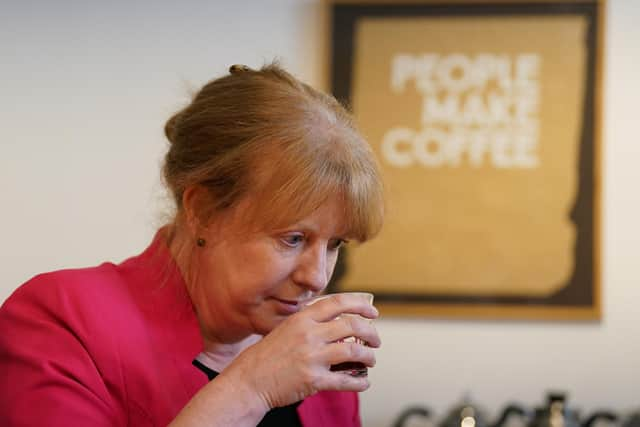Scotland Budget: Cuts likely as SNP ministers left with 'limited' options on tax hikes to narrow 'black hole' in budget
Ministers are likely to be required to cut services in the coming Budget to bridge a £1 billion gap between funding and spending commitments due to “limits” on how much can be raised through tax.
The Scottish Government is facing budgetary pressures caused by an ageing population, an economy growing more slowly than the rest of the UK, and increased spending on social security and other policies.
Advertisement
Hide AdAdvertisement
Hide AdHumza Yousaf committed to implementing a “wealth tax” during his time as First Minister. But finance secretary Shona Robison told MSPs on Thursday that an updated tax strategy would most likely come next year.


This is despite the Government’s Green coalition partners and the Scottish Trades Union Congress (STUC) demanding a new tax band for those earning between £75,000 and £125,000.
Professor Graeme Roy, chair of the Scottish Fiscal Commission, said the Government had limited options available to it when tackling the £1bn funding gap predicted at the next Budget.
He said: “It’s important to note that funding is going up, but that the commitments that are being made are rising faster than the funding that is available.
"If you just look at it from a purely mechanistic point of view and the mechanical and numerical point of view, differences of £1bn, £2bn, whether that be in three, four, five years down the line, there are limits on how much you can essentially raise revenues in order to pay for that given the range of powers that the Scottish Government have available.
"There are limits about how much any government can go in order to raise revenues to pay for higher spending. If you change rates, how might that feed through to the potential performance of the economy and in the tax base?
"It’ll be interesting to see what the Government do over the coming months, particularly with this new tax advisory group, what the relative balance is on changing rates and making sure that the base of the economy, the tax base continues to grow.”
The Fraser of Allander Institute was sceptical about the planned tax advisory group announced by Ms Robison, stating it was “hard not to be cynical” about the suggestion given the “many conversations and roundtables about tax over the years”.
Advertisement
Hide AdAdvertisement
Hide AdMairi Spowage, a fellow at the economics group, said a new tax band as suggested by the STUC would not raise enough to deal with the funding gap, with even a 2p increase for all 550,000 set to pay the higher rate during the next budget period raising only £176 million.
She said: “Discussions about wealth taxes look very difficult in a devolved context. However, completely within the gift of the Scottish Government is the reform of council tax (CT), something the SNP have said they wanted to do since coming to power in 2007.
"Given the number of commissions and groups that have discussed this over the years, another one is not required to set out the issues with CT, or indeed to set out options for replacement. Meaningful discussions about replacements and the political bravery to recognise there will be losers, as well as winners, will be required.”
Prof Roy also raised concerns about the potential long-term impact of cuts to the capital budget, which pays for infrastructure projects, cuts driven by the UK Government’s decisions to lower its spending in those areas.
He said: What’s much more important is what’s the long-term structural impacts of that. It’s about improving the infrastructure, improving connectivity and that’s where the biggest effects and biggest concerns about cuts to the capital budget through to the economy come through.”
Want to hear more from The Scotsman's politics team? Check out the latest episode of our political podcast, The Steamie.
It's available wherever you get your podcasts, including Apple Podcasts and Spotify.
Comments
Want to join the conversation? Please or to comment on this article.
